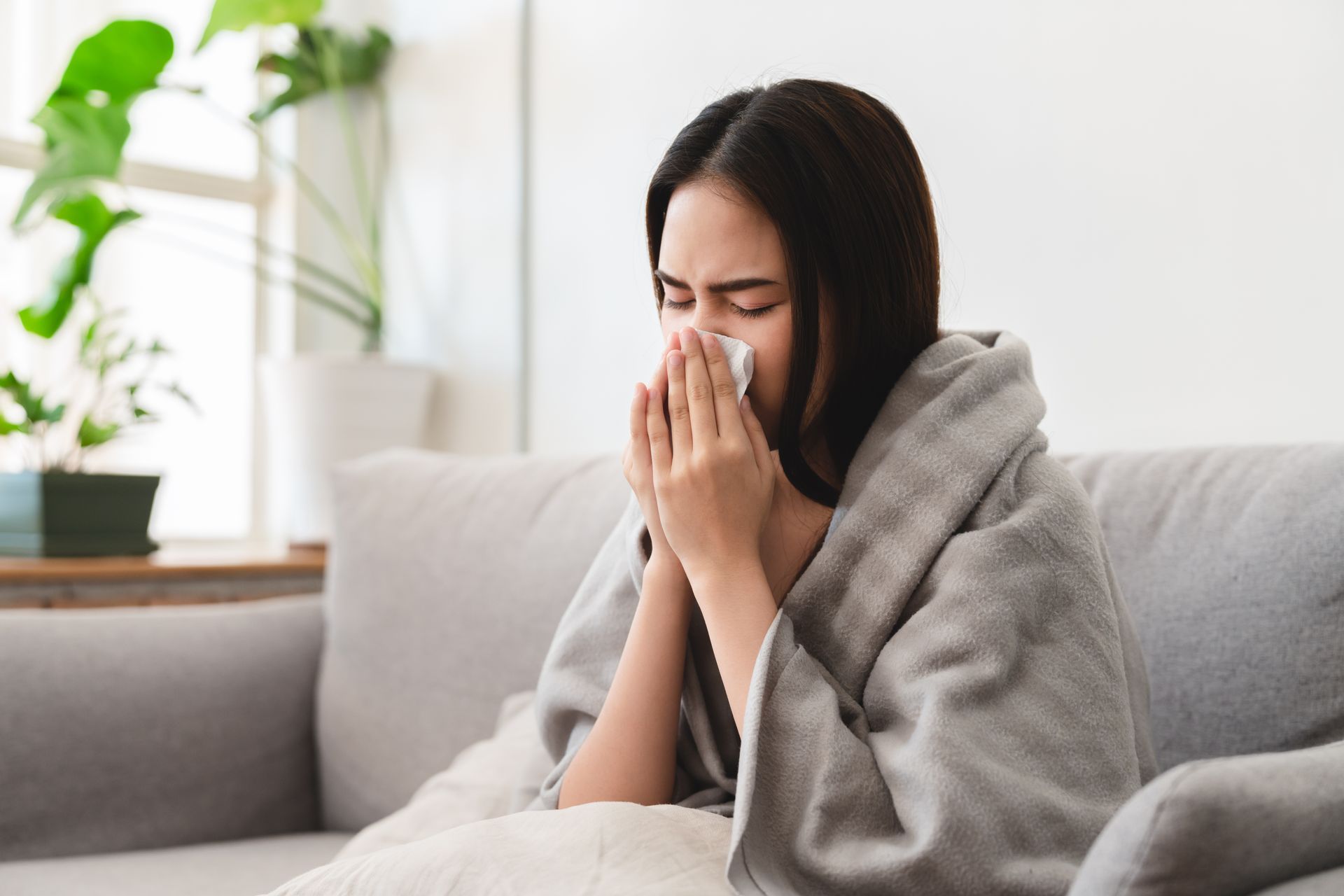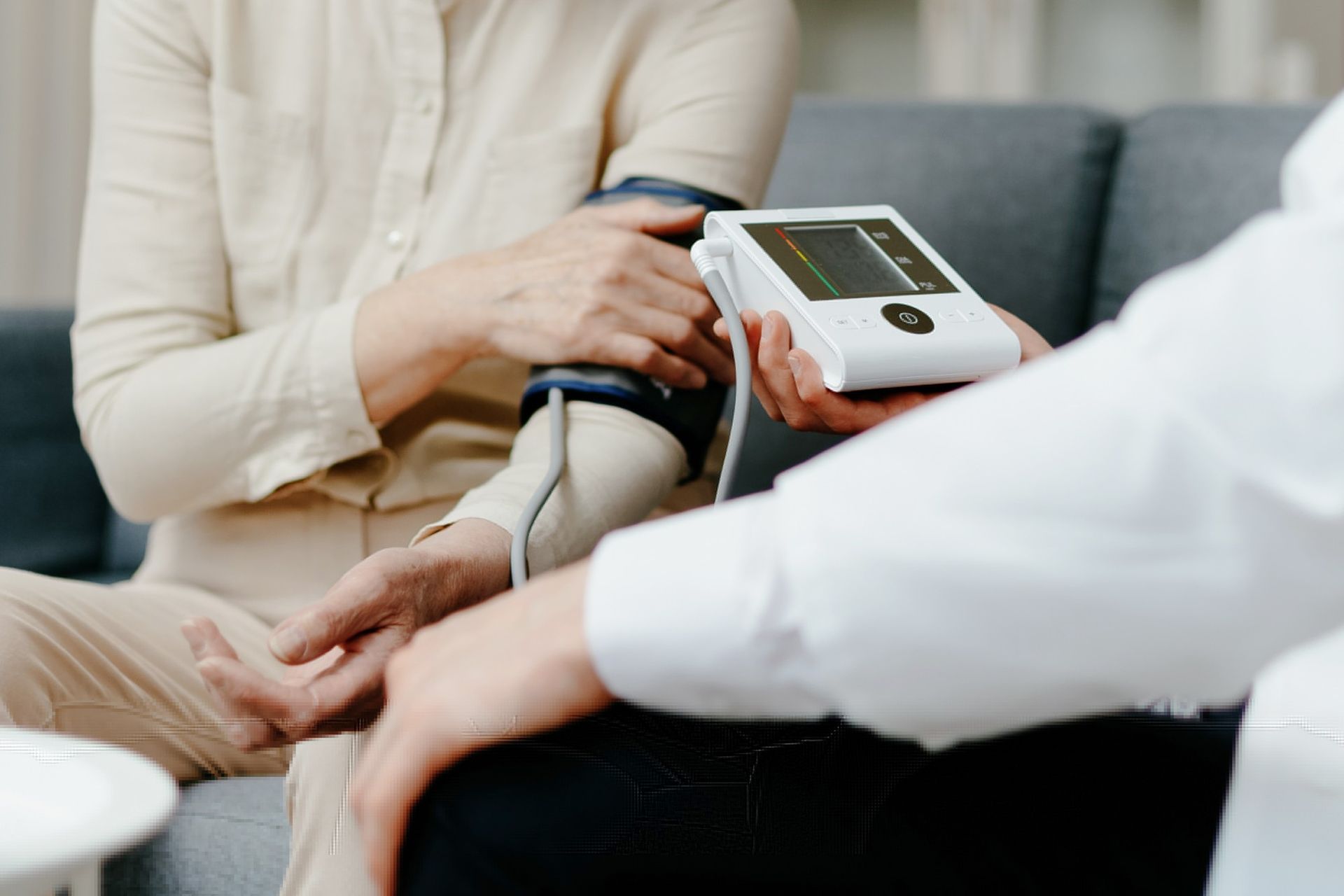Diabetes is reaching alarming levels in the U.S., with more than 38 million Americans living with the condition and another 98 million at risk of prediabetes, according to the Centers for Disease Control and Prevention (CDC).
If you're one of the millions
managing diabetes or prediabetes, you already know that one extra serving, a missed walk, or a poor night’s sleep can easily throw off your blood sugar balance.
While getting a diabetes diagnosis can feel like a big blow, it doesn’t mean you have to say goodbye to sugar forever. After working with many patients over the past years, we at
Houston Family Practice found that the best results often come from small, consistent lifestyle changes to manage diabetes.
In this blog, we will show you how to lower your blood sugar naturally with simple, manageable steps—no unrealistic goals and added stress.
Want Personalized Advice on Managing Diabetes?
Easy Lifestyle Adjustments for Powerful Health Benefits
Managing your blood sugar naturally doesn’t require drastic measures or complicated routines. Small, consistent lifestyle changes to manage diabetes can have a powerful impact on your glucose levels. The following tips provide simple ways to keep your diabetes under control and improve your well-being.
1. Monitor Your Carbohydrate Intake
Carbohydrates, such as bread, pasta, potato, fruit, and sweets, make the biggest impact on blood sugar levels. When you consume refined carbs, your body turns them into glucose, causing a rapid increase in blood sugar.
For better glucose or blood sugar control:
- Read nutrition labels carefully.
- Choose whole carbs like brown rice, quinoa, and oats.
- Stick to
low-glycemic foods that release sugar slowly.
- Pair carbs with protein or healthy fats.
If you're wondering
how to control blood sugar without medication, understanding how carbs affect your body is a great place to start.
2. Choose Foods That Lower Blood Sugar
Being mindful of your carb intake doesn’t mean giving up delicious meals. In fact, there are plenty of tasty foods that lower blood sugar naturally.
Some of the best foods for blood sugar regulation include:
- Leafy greens like spinach and kale
- Whole grains such as steel-cut oats and barley
- Legumes like lentils, chickpeas, and black beans
- Spices like cinnamon, which may improve insulin sensitivity
These foods digest slowly, provide steady energy, and are rich in nutrients that support healthy glucose metabolism.
3. Exercise Regularly
Physical activity is one of the most powerful tips for blood sugar control. It helps your muscles absorb glucose for energy, reducing your blood sugar levels.
Recommended exercises to bring glucose levels down include:
- Brisk walking, cycling, or swimming (cardio)
- Weight training or resistance bands (strength)
Try to get at least 30 minutes of moderate activity most days of the week. Even small bursts of movement after meals can make a difference.
4. Stay Hydrated
Water helps your kidneys flush excess sugar from the bloodstream through urine. Dehydration, however, can cause glucose levels to rise, making hydration even more crucial.
Here are some hydration tips you can follow:
- Aim for 8–10 cups of water daily.
- Avoid sugary drinks like soda.
- Add lemon, cucumber, or berries for flavor.
If you’re feeling thirsty often, it could be a sign of elevated glucose. We offer
diabetes screenings and consultations at
Houston Family Practice to help you monitor and manage your blood sugar levels.
5. Eat More Fiber
Fiber is your friend for steady blood sugar, as it slows digestion and sugar absorption, preventing glucose spikes.
Great sources of fiber include:
- Oats, beans, apples, and flaxseed (soluble fiber)
- Whole grains, nuts, and vegetables (insoluble fiber)
Aim for 25–30 grams of fiber daily. Start gradually and drink lots of water to avoid bloating.
6. Manage Stress Levels
More than a mental strain, stress can trigger higher glucose levels due to increased cortisol. Learning to manage stress is essential for blood sugar control.
Simple stress relief practices include:
- Deep breathing exercises
- Meditation or mindfulness
- Gentle yoga or stretching
At
Houston Family Practice, we recognize how stress impacts every aspect of your health. We can connect you with mental wellness resources and behavioral health referrals if needed.
7. Get Quality Sleep
When you're sleep-deprived,
your body becomes less responsive to insulin, making blood sugar control harder. Even one bad night can affect your blood sugar levels the next day.
Better sleep starts with:
- A consistent bedtime and wake-up routine
- Avoiding screens 1 hour before bed
- Limiting caffeine after 2 PM
If you’re struggling with fatigue, we can help you determine whether a sleep disorder or blood sugar imbalance is to blame.
8. Add Apple Cider Vinegar to Your Diet
Research indicates
apple cider vinegar may aid in reducing fasting blood sugar and improving insulin response.
How to take it:
- Dilute 1–2 teaspoons in a glass of water before meals.
- Use it as a tangy salad dressing base.
- Always dilute and avoid drinking it straight.
Always check with your doctor first, especially if you're on medications that lower glucose levels.
9. Don’t Skip Meals
Skipping meals can cause blood sugar dips, which often leads to hunger spikes and overeating later on. Regular meals help manage blood sugar levels throughout the day.
Here are some of our meal-planning tips:
- Eat every 3–5 hours during the day.
- Include protein, healthy fat, and fiber in every meal.
- Prep meals and snacks in advance.
If you need help creating a balanced meal plan, our healthcare providers at
Houston Family Practice are here to support your nutritional goals.
10. Incorporate Natural Supplements Wisely
Some supplements may help lower blood sugar without insulin, including:
- Cinnamon (Ceylon variety)
- Berberine (a plant compound shown to improve insulin sensitivity)
- Fenugreek (a fiber-rich seed that may lower post-meal sugar levels)
However, not all supplements are safe for everyone. Always consult with a healthcare provider before starting any new regimen.
Experience Compassionate, Effective Diabetes Care with Houston Family Practice
Managing your blood sugar levels doesn’t have to feel overwhelming. With the right habits, support, and education, you can feel better, stay energized, and prevent long-term complications.
At
Houston Family Practice, we provide our diabetic patients with personalized treatment plans that support blood sugar control while respecting individual lifestyles and preferences. Whether you're ready to make changes or just need a check-in, we’re here to help you every step of the way.
Book your appointment today and learn how to lower blood sugar naturally.
Get Expert Guidance on Blood Sugar Control
Frequently Asked Questions
How do I know if my blood sugar is too high?
Symptoms of high blood sugar include frequent urination, extreme thirst, fatigue, and blurred vision. If you notice these signs, we recommend monitoring your glucose levels and consulting a healthcare provider.
How does blood sugar affect my energy levels?
Consistently high or low blood sugar can cause fatigue and lethargy. Stable glucose levels are crucial for sustained energy throughout the day, so managing your blood sugar levels through regular meals and activity is essential.
Can I manage my blood sugar with diet alone?
Diet plays a significant role in blood sugar control, but it’s often most effective when combined with physical activity, hydration, stress management, and, if necessary, medication.
How often should I monitor my blood sugar levels?
The frequency of blood sugar monitoring varies depending on your needs and treatment plan. Daily checks may be necessary for some, while others may monitor less frequently. Discuss the best schedule with your doctor.















